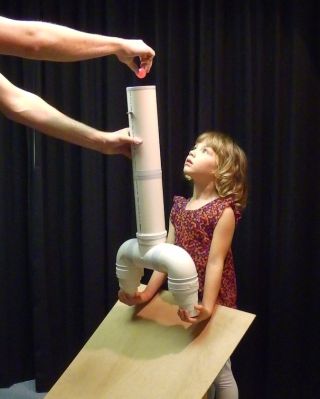There are many good reasons to complain about human foresight. For one thing, we are often lousy at taking a longer view, being guided instead by the prospects of a quick buck, the whims of the daily news cycle, or likes on social media. We persistently predict our projects will be finished within budget and on time, even if our rosy forecasts have often been wrong before. And we tend to expect that negative events, say, falling off a ladder, are less likely to happen to us than they actually are. Much of what comes to pass we do not foresee, and much of what we foresee does not come to pass.
Throughout history, humans have conjured up audacious strategies to help them peek ahead in time. An entire alphabet’s worth of fortune-telling methods abounds, from abacomancy—reading the future in the dirt, sand, smoke, or ashes—to zoomancy—reading it from the behavior of birds, ants, goats, or donkeys. What these “-mancies” have in common, of course, is that they do not work as advertised.
Examples of our failures to foresee remain all around us, and they can have tragic consequences for us individually and also for our planet more broadly. When the inventor Thomas Midgley Jr., for instance, introduced lead to gasoline and chlorofluorocarbon to refrigerators, he failed to foresee that within a few decades, these would turn out to be two of the worst pollutants in history.
We are not clairvoyants, but…
You may well be left wondering how our shoddy forecasting capacities could have possibly evolved. What’s the point of so much miscalculation? In our recent book—The Invention of Tomorrow: A Natural History of Foresight—Jon Redshaw, Adam Bulley, and I argue that—paradoxically—much of the strength of foresight comes from our very awareness of its limits.
Because we know we don’t know exactly what the future holds, this drives us to make contingency plans and to innovate ways to tip fortune in our favor. Though we may all have a Plan A, say for our careers, we also understand that events may turn out differently from what we imagined: Our company could go bust, we might get bored, or we could be hit by a bus. So, we put money aside for a rainy day, keep an eye on other opportunities, and purchase comprehensive life insurance packages. People sign prenups and set up fire extinguishers for when they might be needed, all the while hoping they never will be.

Hedging her bets, Nina holds out two hands to make sure she catches the dropping prize.
Source: Thomas Suddendorf
Considering multiple possibilities is essential to effective foresight
Take a simple psychology experiment from our research group where we drop a marble into a vertical tube with two exits at the bottom, like an upside-down Y, and ask a participant to catch it. To prepare for the drop, 2-year-old children tend to cover only one or the other exit, which means they catch the marble only some of the time. But by age 4, children instantly cover their bases and hold one hand under each of the exits, ensuring they will catch the prize regardless of where it falls. Even preschoolers know that the future is uncertain and prepare for more than one possibility.
When we giveWhen we give this task to chimpanzees, orangutans, and various monkeys, dropping a grape into the forked tube, they act like young toddlers and tend to cover just one exit. They don’t seem to know that their prediction could be wrong. There is as yet no compelling evidence that nonhuman animals, even our closest living great ape relatives, can foresee mutually exclusive possibilities and prepare accordingly.
Because humans can conceive of multiple versions of the future branching from the present, we can compare our options to select the best one. This capacity has far-reaching implications, not just in enabling contingency planning. It gives us our intuitive sense of “free will”—our (some would say fanciful) impression that we are the masters of our destiny. People tend to treasure this notion. Although it’s not always obvious which path is best, it is empowering to think we are the ones behind the wheel.
Foresight has changed the world
Since we realize that our predictions might be wrong, we can also set out to test them—a process that scientists exploit to a powerful effect. Experiments and observations give rise to theories, which lead to predictions that are then tested with further experiments and observations. If the predictions turn out to be wrong, scientists try to devise a better theory to explain the unexpected observations, which then leads to new predictions and tests. And so on. With this simple cycle—essentially an error-correction mechanism—the collaborative scientific endeavor has resulted in giant strides in our understanding of the world and our capacity to predict what lies ahead.
Today, many scientific forecasts indicate that we are facing dramatic challenges—pollution, climate change, and mass extinctions, to name but a few—that will require complex plans and concerted efforts to address.
As presumably the only animal on the planet capable of foreseeing alternative long-term consequences of their actions, we have choices faced by no other creature. Our farsightedness burdens us, and us alone, with responsibility. And unless we want to go the way of the dodo, it will pay to cover our bases.
This article was adapted from The Invention of Tomorrow: A Natural History of Foresight by Thomas Suddendorf, Jonathan Redshaw, and Adam Bulley.
